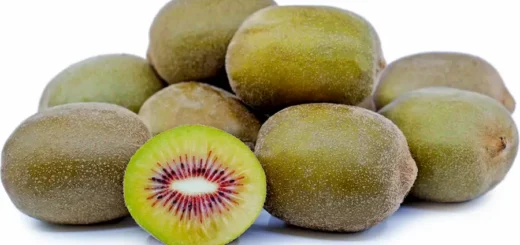A new world of beauty — Exporter Magazine

The second week of November in Hong Kong is a busy time for the beauty industry. Since 2011 it has been the venue for two events: the Asian edition of the Sustainable Cosmetics Summit, held over two days at the start of the week, followed by three days of Cosmoprof Asia: A New World for Beauty.
For any New Zealand beauty or personal care company wanting to do business in Asia, this is the week to be in Hong Kong.In November 2014 I attended both events – the first representing Natural Products New Zealand (NPNZ) as a guest of hosts Organic Monitor, and the second as president of New Zealand’s Cosmetics, Toiletry and Fragrance Association (CTFA).First impressions? The glaring absence of brand New Zealand. I was the only attendee from our country at the Sustainable Cosmetics Summit and there were only two New Zealand companies at Cosmoprof, one of which had to exhibit as part of the Australian Pavillion!The Sustainable Cosmetics Summit is run by Organic Monitor Ltd and is also held each year in New York, Paris and most recently São Paulo. The Hong Kong event is the Asia-Pacific edition and therefore the most accessible for Kiwi exhibitors and visitors.As global experts in the natural and organic space the Summit content is always extremely relevant and inspiring.In Hong Kong, Judi Beerling led a three-hour workshop on ‘Developing Paraben-Free Preservative Systems’ – an information-rich session for natural formulators and marketers alike, presented by an expert in her field. This was followed by another seminar on ‘Reducing the Environmental Impact of Cosmetics’ which, in an age when consumers are increasingly showing purchasing preference for sustainable brands, was insightful for all businesses in the industry.The diversity of approaches to sustainability was reinforced by Organic Monitor president, Amarjit Sahota, who commented the next day that, from a consumer point of view, the demand for natural cosmetics is primarily driven by a fear of chemicals. However, large multinationals are driven by CSR reporting to show they are lowering their environmental impact, not by creating synthetic-free products; a reminder to natural players that sustainabilty credentials are not their exclusive domain.Highlights of day two at the Summit included powerful presentations from Lush, Primavera and Apivita, brands that are all experiencing considerable sales growth in the Asian region.A takeaway for me from these sessions is that, as sustainability is not black and white, maybe the best way forward is not to use metrics but to take a more holistic view, like these three brands – focus on brand philosophy rather than measuring everything.Other standouts included Jorge Larranaga from Australian Organics who gave invaluable guidance on market access to China which, ironically, is the largest market in the world for organic baby food but only a small market for natural and organic cosmetics because of trade barrier issues.
He was followed by Rando Yuen, environmental, social and governance manager for Sasa, the cosmetic retail chain that should be on the radar of every New Zealand cosmetic brand wanting to enter the Hong Kong and China markets. Green products currently only account for three percent of Sasa sales but moves are afoot to grow this with the installation of a “Green Corner” in flagship store Sasa Supreme Causeway Bay in September 2014. Watch this space!
The attraction of Cosmoprof Asia Cosmoprof Asia is best known as an opportunity for companies to exhibit and attract interest from distributors, retailers, brand owners and OEM customers, and the 19th edition didn’t disappoint. The show, held at Hong Kong’s impressive Convention and Exhibition Centre, attracted some 60,000 vistors from all over the world, with China, Korea, Taiwan, Thailand and Japan the top five Asian sources. 2,362 exhibitors from across the globe encompassed all sectors of the beauty industry.Less well known is the education component of the show, much of which is free. I attended a fascinating three hour session on doing business in China aptly titled “Seize the Distribution Opportunities in the Internet Era”. The session illustrated how the Internet has totally transformed the retail market in China with brands now being able to talk to limitless users. The speakers pointed out that traditional multinational brands are at a disadvantage in modern China. Consumers are looking for new, unique and different products as a means of expressing their own individuality, and the Internet is where they find these.Internet businesses are looking for these types of products right now and product registration is not required! However, a note of warning here as well: China is not a market to test the water. You need to be committed, you need to invest and you need to be in for the long term.The other session I attended was “Organic & Natural Cosmetic Market in Japan”, which gave the clear message that this is a market sector on the rise; driven by Japan’s world-leading super-aged society. The growing number of active elderly people all want be beautiful, healthy and live longer. They feel safe with organic food and cosmetics which they naturally think is the healthy option. Growing awareness of skin-related health amongst the younger generation is set to further fuel this growth.The Asian market for natural and organic cosmetics is growing by ten to 15 percent per year. It represents a huge pool of consumers looking for the types of product that so many New Zealand companies are now producing; and there is room for all.Make 2015 the year you’ll go to Asia and start taking your share of that market.
Leigh Kite is the current president of the CTFA and a board member of NPNZ. Her business, Kite Marketing, specialises in the business development of New Zealand sourced natural and organic products. She is organising a delegation of New Zealand companies to attend Cosmoprof Asia 2015.
Phone 021 386 970 to register your interest.
Publishing Information
Magazine Issue
Exporter Magazine March/April 2015 issue 37







